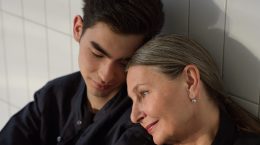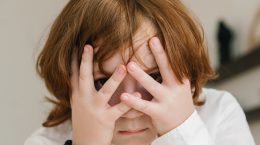Decree No. 18, issued in 2006, managed to destroy more than one family in 15 years. It was especially true for activists and journalists – the removal of children has become one of the most common repressions against women who stood out for their activities, not in support of Lukashenka and the local authorities. We devoted our campaign “Non-Children Play” to such cases-however, of course, not only active Belarusians suffered from the actions of the guardianship authorities. Today, a child can be separated from his mother for the lack of repairs in the house, poor marks, an inoperative furnace and much more. We will remind you about how “Our House” fought for the right of Belarusian women to raise their children.
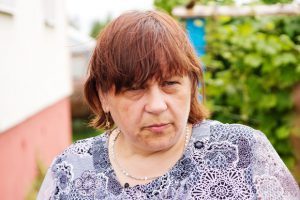 In 2014, Irina Motsnaya, an activist from Klimovichi, lost six adopted children. The woman worked as a parent-educator. As soon as her husband committed suicide, the children were taken away. The woman disagreed with the decision. She appealed to various authorities with a request to allow her to continue raising children. But soon, a criminal case was opened against Irina, accusing her of abusing the rights of a guardian, restricting personal freedom and torturing minors. The court appointed her four years in jail. Our activists supported Irina during her stay in prison.
In 2014, Irina Motsnaya, an activist from Klimovichi, lost six adopted children. The woman worked as a parent-educator. As soon as her husband committed suicide, the children were taken away. The woman disagreed with the decision. She appealed to various authorities with a request to allow her to continue raising children. But soon, a criminal case was opened against Irina, accusing her of abusing the rights of a guardian, restricting personal freedom and torturing minors. The court appointed her four years in jail. Our activists supported Irina during her stay in prison.
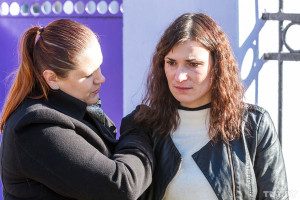 In 2015, we followed the story of Anastasia Navoeva, a resident of Bobruisk. Her children were taken from her family, as she allegedly did not pick up her daughter from the hospital on time. Anastasia was forced to work three shifts on “Belshina” to support the children, as she was an orphan, and no one could help her. She reported this to the education department – and they concluded that the Navoev family was unfavourable and decided to take her daughter away. Anastasia came to the girl in the hospital, dressed her and took her out into the street. And at that moment, a policeman arrived, who began to tear the child out of the mother’s hands. He kicked the woman in the stomach, began to wring her hands. Two security officers detained Anastasia with physical force. After a while, she learned that a criminal case had been opened against her. The woman was sentenced to two years of restriction of freedom, having decided to send her to the Republican Scientific and Practical Centre of Mental Health. From the colony where she was serving her sentence, she wrote a letter to our activists.
In 2015, we followed the story of Anastasia Navoeva, a resident of Bobruisk. Her children were taken from her family, as she allegedly did not pick up her daughter from the hospital on time. Anastasia was forced to work three shifts on “Belshina” to support the children, as she was an orphan, and no one could help her. She reported this to the education department – and they concluded that the Navoev family was unfavourable and decided to take her daughter away. Anastasia came to the girl in the hospital, dressed her and took her out into the street. And at that moment, a policeman arrived, who began to tear the child out of the mother’s hands. He kicked the woman in the stomach, began to wring her hands. Two security officers detained Anastasia with physical force. After a while, she learned that a criminal case had been opened against her. The woman was sentenced to two years of restriction of freedom, having decided to send her to the Republican Scientific and Practical Centre of Mental Health. From the colony where she was serving her sentence, she wrote a letter to our activists.
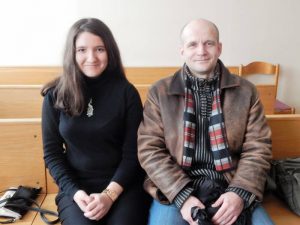 In 2016, an interview with Anastasia Antonenko, a resident of Vitebsk, was published on our website. The girl was removed from the family because of the activity of her mother, Natalia Antonenko. Anastasia wanted to sit with her friend at the back deck, but the class teacher did not allow it and ordered her to bring a doctor’s certificate on the necessity to sit at the back deck. After that, a social teacher, a class teacher, and employees of the guardianship authorities began to come to her home. They said that the girl is registered and should go to the prevention council. The social teacher told Anastasia in front of the whole class that she would send the student to an orphanage. Nastya started skipping school – but still, she was sent to the shelter saying that if she did not go there voluntarily, she would live in a psychiatric hospital. Natalia Antonenko and human rights activist Pavel Levinov visited the meeting of the inspection on Juvenile Affairs. Later, Anastasia said that no one does homework with children in the shelter, that the food in the shelter is tasteless, and the children were forced to eat it, that upon arrival, she had to dress in shelter clothes. On New Year’s Eve, Anastasia ran away from the orphanage as she wanted to spend the holiday at home with her family. However, the administration began threatening the parents with a criminal case if they did not return the child to the orphanage. In total, the girl had to spend 7.5 months in the shelter.
In 2016, an interview with Anastasia Antonenko, a resident of Vitebsk, was published on our website. The girl was removed from the family because of the activity of her mother, Natalia Antonenko. Anastasia wanted to sit with her friend at the back deck, but the class teacher did not allow it and ordered her to bring a doctor’s certificate on the necessity to sit at the back deck. After that, a social teacher, a class teacher, and employees of the guardianship authorities began to come to her home. They said that the girl is registered and should go to the prevention council. The social teacher told Anastasia in front of the whole class that she would send the student to an orphanage. Nastya started skipping school – but still, she was sent to the shelter saying that if she did not go there voluntarily, she would live in a psychiatric hospital. Natalia Antonenko and human rights activist Pavel Levinov visited the meeting of the inspection on Juvenile Affairs. Later, Anastasia said that no one does homework with children in the shelter, that the food in the shelter is tasteless, and the children were forced to eat it, that upon arrival, she had to dress in shelter clothes. On New Year’s Eve, Anastasia ran away from the orphanage as she wanted to spend the holiday at home with her family. However, the administration began threatening the parents with a criminal case if they did not return the child to the orphanage. In total, the girl had to spend 7.5 months in the shelter.
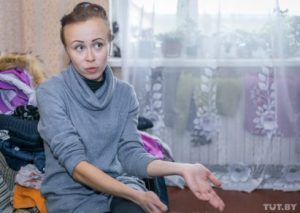 In 2016, the family of a displaced person from Lugansk, Svetlana Yatsenko, came to the attention of the guardianship authorities. They lived in Odelsk, Grodno region, worked at the enterprise, raised a seven-year-old son. Everything was in order until one day. Representatives of social services came to the family and said that the child was in danger. Allegedly, the parents were drunk and insane at the time of the visit. Svyatoslav was taken away by force, without letting him say goodbye to his mother and father. And her husband Alexander was then given 20 days of arrest for resisting officials – although there was no resistance. “Our House” drew attention to this story. We talked to Svetlana after her child was taken away and learned that there is a risk of deportation to Lugansk. Also, the woman was attacked by an employee of the Inspectorate for Juvenile Affairs. After two months of staying in the shelter, the child was still returned to his parents.
In 2016, the family of a displaced person from Lugansk, Svetlana Yatsenko, came to the attention of the guardianship authorities. They lived in Odelsk, Grodno region, worked at the enterprise, raised a seven-year-old son. Everything was in order until one day. Representatives of social services came to the family and said that the child was in danger. Allegedly, the parents were drunk and insane at the time of the visit. Svyatoslav was taken away by force, without letting him say goodbye to his mother and father. And her husband Alexander was then given 20 days of arrest for resisting officials – although there was no resistance. “Our House” drew attention to this story. We talked to Svetlana after her child was taken away and learned that there is a risk of deportation to Lugansk. Also, the woman was attacked by an employee of the Inspectorate for Juvenile Affairs. After two months of staying in the shelter, the child was still returned to his parents.
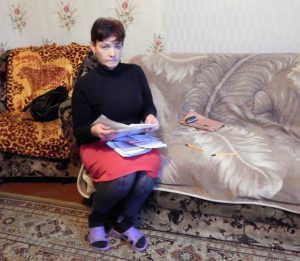 In the same period, Tatyana Chervyakova, a widow from Vitebsk, faced problems. Her son Zakhar was taken away for the electricity debt of 1,480 rubles. The woman did not work and could not pay for electricity. Zakhar received a pension for the loss of the breadwinner, but the account was arrested, and Tatiana could not withdraw money from it. After Zakhar’s taking to the orphanage, Tatyana got a job as a nurse. Authorities calculated approximately 200 rubles every month from her small salary. This amount of money was for the maintenance of her son in an orphanage. We managed to persuade housing and communal services to allow the organization to pay the fine in instalments. After the publicity of the case, caring people began to offer Tatyana help. Fortunately, Zakhar returned home soon.
In the same period, Tatyana Chervyakova, a widow from Vitebsk, faced problems. Her son Zakhar was taken away for the electricity debt of 1,480 rubles. The woman did not work and could not pay for electricity. Zakhar received a pension for the loss of the breadwinner, but the account was arrested, and Tatiana could not withdraw money from it. After Zakhar’s taking to the orphanage, Tatyana got a job as a nurse. Authorities calculated approximately 200 rubles every month from her small salary. This amount of money was for the maintenance of her son in an orphanage. We managed to persuade housing and communal services to allow the organization to pay the fine in instalments. After the publicity of the case, caring people began to offer Tatyana help. Fortunately, Zakhar returned home soon.
In 2017, we told the story of Tatyana Zhigar from the Gantsevichi district. Authorities took from her two children: a four-year-old son and a daughter, whom she gave birth to, despite cancer. Her son was taken away for drinking alcohol. Her daughter Yana was taken away at the moment when Tatiana was staying with her sister in Gantsevichi. In addition to suspicion of alcoholism, Tatiana was accused of suicidal tendencies. Employees of the guardianship service brought the woman to the point that she drank rat poison. After that, she decided to return at least her daughter because her son was in a foster family. The commission regularly visited Tatiana’s family, praised her every time – but as soon as Tatiana drank one cup of beer, the guardianship authorities decided to deprive her of her parental rights. They appeared quickly – as if they knew about it. Yana was adopted – as her mother admitted, “there was an order for her”. The woman wanted to take her son too – but authorities told her not to look for him, or she would appear in prison. Two months after the interview with Tatiana, it turned out that her daughter Yana was adopted even before she was deprived of her parental rights through the court. Tatyana is sure that her girl was “sold”.
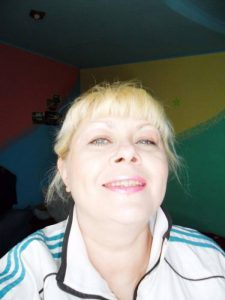 In the same year, we got the story of Natalia Kostyuchenko from the Uzda district – the woman was listed as unemployed, which was the reason for checking how her 9-year-old son lives. Commission from guardianship authorities visited the family and wrote in the final protocol that Natalia used alcohol and didn’t deal with the child. Before that, Natalia had a conflict with her common-law husband. He drank and beat his wife – because of this, the family got the status of a socially dangerous situation. In 2016, to have an income, a woman rented a room, and when the tenant lost money, he accused her of it. The police tried to persuade her to sign a confession so that the child would remain in the family, but Natalia refused. After that, checks began to come to her more often. We contacted the Uzda district executive committee to find out the reason for the biased attitude towards the family and the progress of the case.
In the same year, we got the story of Natalia Kostyuchenko from the Uzda district – the woman was listed as unemployed, which was the reason for checking how her 9-year-old son lives. Commission from guardianship authorities visited the family and wrote in the final protocol that Natalia used alcohol and didn’t deal with the child. Before that, Natalia had a conflict with her common-law husband. He drank and beat his wife – because of this, the family got the status of a socially dangerous situation. In 2016, to have an income, a woman rented a room, and when the tenant lost money, he accused her of it. The police tried to persuade her to sign a confession so that the child would remain in the family, but Natalia refused. After that, checks began to come to her more often. We contacted the Uzda district executive committee to find out the reason for the biased attitude towards the family and the progress of the case.
In 2017, we took up Irana Sheralieva case. She was born in an Azerbaijani-Russian family and lived in the Pinsky district. Here she met Belarus Alexey, became pregnant with her first child, then the relationship between the spouses deteriorated, they separated. But after a while, Irana returned to the man and became pregnant again. But the family could not be saved. Irana and Alexey had separated, the woman met another – but there was no happiness here either: he drank, then beat his wife. During one of the conflicts, police officers arrived, handcuffed a woman and took her away, threatening her with deportation, and took the children away. Employees of the guardianship authorities came to the house, drew attention to the unwashed dishes in the sink, the lack of sewerage and decided to deprive Iran of parental rights and send it to Azerbaijan. Interestingly, the trial for the deportation of Irana took place without her participation. Even the officials at the consulate, where she applied, were perplexed how this was possible.
To understand the situation, how exactly the process of removing children passes, we turned to a social teacher of one of the Minsk schools. “The institution of the family in our country is falling apart. Class teachers, educators, but not parents, should be responsible for everything. Moreover, it seems that all these “receipts” for fire detectors, for leaving children for mugs – all from the category of “whatever happens, otherwise you will have to answer”. And we want to plan our weekends, think through family traditions, hiking, cycling,” she said.
According to an employee of the school, in today’s realities, any child can be removed from the family – even if both parents do not drink, the child attends a music school and a sports section, studies well. For example, it can happen after skipping lessons without a doctor’s certificate (even if the child studies distantly). No one will care that the student has mastered the knowledge in the right amount. The teacher advised not to take the child to the prevention council if he does not wander, is not registered as a user of alcohol or drugs, has not been brought to justice.
In 2018, we wrote about Olga Loseva, an Orsha district citizen, who was deprived of her parental rights, taking away two children from her. In 2009, six-month-old Nikita was removed from the family – on that day, his parents celebrated his christening, drank some alcohol, and at that moment, doctors from the children’s polyclinic came to the house. The baby was taken to the hospital, and three months later, after a course of treatment for alcohol addiction, he was returned. But the family was still on the list of disadvantaged. The Losev family regularly paid for the garden of the eldest son. Then, a younger child appeared in the family. And in January 2014, both children were taken away without giving their parents any documents. In 2015, the court deprived Olga and her husband of their parental rights. However, parents visited their children, brought them toys and tried to restore their rights. But they did not have time – in 2016, the youngest son was taken to a foster family. Olga filed a lawsuit. We asked the lawyer to comment on this situation.
“The official policy of the state, in particular, officially announced by the Ministry of Education, says that nowhere will a child be better than in his own family. There are cases when children are placed in a shelter two or three times, but then the family is restored in the end. Immediately we see that almost immediately, after the second withdrawal, the authorities submitted documents for the deprivation of parental rights. There was no plan and no detailed attempt to restore the family. The system provokes parents instead of somehow helping the family to recover. Perhaps this is a self-affirmation of the employees of our bodies. They deliberately restrict communication between children and parents to avoid emotional situations. And at this moment, the press says that “we are glad when parents communicate with their children.” But the documents for adoption have not yet been submitted. It looks like someone has already liked the child,” the lawyers told us.
With the lawyer of “Our House”, we prepared a memo for the case when authorities want to take away children. First of all, parents should get an interdepartmental plan. Its points are developed by several services that study the family resource and take measures to eliminate the reasons that served as the basis for the child taking away. Often, the families don’t issue plans for months – and yet, failure to comply with its points threatens to deprive parents of their rights. If there is no plan, parents are being brought to administrative responsibility literally out of the blue. The Belarusian authorities provoke rash actions of parents, harsh statements and take advantage of this. In addition, it is necessary to apply for restoration of rights – even if the parents did not have time to correct the situation or eliminate the reasons, or the authorities considered that the reasons were not eliminated. In this situation, no one will be able to adopt the child. Unfortunately, cases when literally for a week and a half of the absence of actions on the part of parents, children were taken away by another family are not uncommon.
“Our House” also told about the fact that children are taken away for utility debts – our lawyer commented on the situation for the Belsat TV channel. Veronika Glebovich, a mother of many children from the village of Negoreloe, owed housing and communal services 5 thousand rubles. Veronika was on maternity leave and received a child benefit of about 420 rubles. The father of the children earned about 300 rubles. Utilities in Belarus can reach up to 100 rubles. It is not surprising that it was difficult for a family with several children to pay. There was constantly not enough money even for children, not to mention utilities. Where is the vaunted care of the state for large families? Instead, the local housing and communal employers sent a letter to the education department about regular non-payment of utilities. “As a new way of securing obligations. You have to pay, and your child was taken away from you. And you will do anything. You will pay off the communal apartment, and you will pay for the maintenance of the child”, the lawyer revealed the scheme.
In 2019, we collected cases when women were separated from their children in volume monitoring. We drew attention to the fact that a mother who is in a crisis is afraid to seek help from the state, as this is fraught with registration and subsequent withdrawal of the child. In the monitoring, we included situations when children were selected because of the poverty of their parents, lack of work, cases of alcohol abuse, debts for utilities, disability of their mother or father.
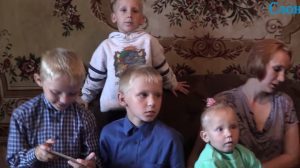 So, Alyona Kostikova from the Zelva district in 2017 lost her children because the family did not have real estate and transport, and the mother could not buy enough food. At the same time, her husband always faithfully fulfilled his father’s duties. It turned out that the family’s income is only 100 rubles a month plus the help of their grandmother. Children live in a house allocated by an agricultural enterprise, but the building requires repair, and there is no money for it. And because of the status of the socially dangerous situation, which Kostikov got a year earlier, the officials took all child benefits away from them.
So, Alyona Kostikova from the Zelva district in 2017 lost her children because the family did not have real estate and transport, and the mother could not buy enough food. At the same time, her husband always faithfully fulfilled his father’s duties. It turned out that the family’s income is only 100 rubles a month plus the help of their grandmother. Children live in a house allocated by an agricultural enterprise, but the building requires repair, and there is no money for it. And because of the status of the socially dangerous situation, which Kostikov got a year earlier, the officials took all child benefits away from them.
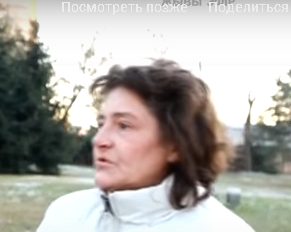 Four children were seized from Nelly Ditkovskaya, a mother of many children from the Kobrin district, citing the dirt in the house and the alcoholism of Nelly and her husband. Although at the same time, there was not a single protocol in the police with fixed alcohol abuse, there were no complaints about the spouses either from neighbours or at work. But the Ditkovskaya were in line for improving housing conditions – the authorities used Decree No. 18 to prevent receiving an apartment.
Four children were seized from Nelly Ditkovskaya, a mother of many children from the Kobrin district, citing the dirt in the house and the alcoholism of Nelly and her husband. Although at the same time, there was not a single protocol in the police with fixed alcohol abuse, there were no complaints about the spouses either from neighbours or at work. But the Ditkovskaya were in line for improving housing conditions – the authorities used Decree No. 18 to prevent receiving an apartment.
In the monitoring, we added the case of Valentina Buslaeva from the Kopyl district. She received a new house from the state together with a debt of the previous tenants for utilities. In case of non-payment of the debt, Valentina got threatens to seize three minor children. It did not happen thanks to the participation of human rights defenders of “Our House”. We announced a collection of money to pay off the arrears of utility bills, collected funds and paid the amount. After that, we came to the commission meeting and convinced them to leave the family alone.
In 2018, Olga Sushko was rude to the assistant prosecutor of the district – and as a result, the officials took her sons away from her, as they allegedly lived in unsuitable conditions. They took the woman’s entire salary in favour of the children in the shelter. Alesya Fominykh from Loyev gave birth to her first child in 2018 – but he was taken away because of poverty. However, in a small district centre, there is no work with a high salary that would allow you to make repairs at home. Thanks to the help of charitable organizations and caring Belarusians, the family managed to repair the house, stock up on food – but they did not return the child to them. Only after a public outcry, little Maxim came back to his mother. Natalia Strelchenko from Dubrovno was a local activist – a commission came to her to check the conditions where minor children live. Earlier, she had an administrative penalty for disobeying police officers. But the commission, which came to her home, claimed that Natalia had a debt for gas supply. Even the receipt with the fact that Natalia paid for the gas supply did not become proof. Therefore, the social services visited her one more time. They checked whether the woman’s children had everything they needed.
This year, information about our help women whom the state wanted to deprive of children appeared on the pages of our website several times. After all, the problem has become more urgent than ever. On September 14, 2020, the Prosecutor General’s Office of Belarus threatened to withdraw children from their families if they participated in protest actions. By that time, the prosecution had opened 200 cases against minors for engaging in protest actions. It means that 200 young Belarusians were in danger of leaving their mother for shelter. On April 25, 2021, on International Daughter’s Day, we wrote about how the Belarusian state takes away daughters and sons from mothers. In our review, you can read about the cases of Olesya Sadovskaya, Tatyana Mironova, Vitaly Naumik, Elena Lazarchik. On June 1, 2021, on International Children’s Day, we raised this topic again. In a specific material for the date, we told about how we helped mothers Svetlana Grechulina, Inna Sabiryanova and Irina Kravets. On the same day, we released an interview with Olga, a mother on maternity leave, who got threatens with children removal for participating in protest actions. During one of the marches, the security officer hit the girl on the leg, and as a result, she received a fracture. She was insulted that she “gave birth to an allowance”, she spent a day in a cell without clothes – the security forces were not interested in the fact that she had two children left at home. “Our House” helped Olga with the payment of fines and food.
Any woman can be forced to do anything by threatening her child (even if he is an adult and the parent himself). And the illegitimate government understands this. Children turn into a lever of pressure on mothers, and mothers have to confess to crimes they did not commit, pay insane fines and flee the country. Instead of spending time with a child, Belarusian mothers should go through humiliation, violence (moral and physical), serve time in prisons. The authorities do not think about what kind of trauma children get in this case.




